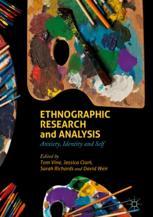

Most ebook files are in PDF format, so you can easily read them using various software such as Foxit Reader or directly on the Google Chrome browser.
Some ebook files are released by publishers in other formats such as .awz, .mobi, .epub, .fb2, etc. You may need to install specific software to read these formats on mobile/PC, such as Calibre.
Please read the tutorial at this link. https://ebooknice.com/page/post?id=faq
We offer FREE conversion to the popular formats you request; however, this may take some time. Therefore, right after payment, please email us, and we will try to provide the service as quickly as possible.
For some exceptional file formats or broken links (if any), please refrain from opening any disputes. Instead, email us first, and we will try to assist within a maximum of 6 hours.
EbookNice Team

Status:
Available5.0
25 reviewsThis book reflects on the contemporary use of ethnography across both social and natural sciences, focusing in particular on organizational ethnography, autoethnography, and the role of storytelling. The chapters interrogate and reframe longstanding ethnographic discussions, including those concerning reflexivity and positionality, while exploring evolving themes such as the experiential use of technologies. The open and honest accounts presented in the volume explore the perennial anxieties, doubts and uncertainties of ethnography. Rather than seek ways to mitigate these ‘inconvenient’ but inevitable aspects of academic research, the book instead finds significant value to these experiences.
Taking the position that collections of ethnographic work are better presented as transdisciplinary bricolage rather than as discipline-specific series, each chapter in the collection begins with a reflection on the existing impact and character of ethnographic research within the author’s native discipline. The book will appeal to all academic researchers with an interest in qualitative methods, as well as to advanced undergraduate and postgraduate students.